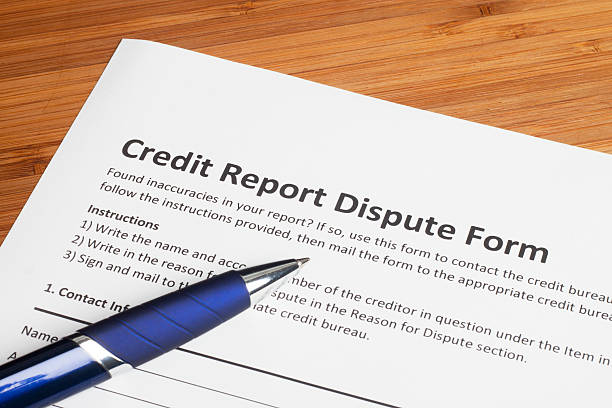It is Illegal for Credit Bureaus to Ignore Credit Report Dispute Letters
Los Angeles, CA – About 1 in 5 credit reports contain errors. This illustrates just how easy it is for consumers credit scores to be misrepresented. It is consequential for consumers because lower credit scores can lead to higher interest rates on loans. And higher interest rate means spending more money, all because the credit bureaus made a mistake.
Some examples of credit report errors are:
- Inaccurate personal information such as name, address, employment information, etc.
- Incorrect credit information such as late payments that were paid on time, closed accounts that are listed as open, a delinquent account that is seven or more years old, and etc.
- Incorrect public records such as lawsuits that consumer was not involved in, bankruptcies that consumer did not file, and etc.
- Wrong inquiry information such as a purchase that consumer did not authorize
- Incorrect criminal records on the background check report that show consumer’s status such as felony, sexual assault, misdemeanors, and arrests.
It is nowhere near fair for the consumers to be suffering just because the credit bureaus failed to do their job. Fortunately, writing a credit report dispute letter to credit reporting agencies can help remedy the situation.
How to Dispute Credit Report Items to Credit Reporting Agencies
Lauren Rode, a credit report dispute lawyer at Consumer Action Law Group, states that one of the best ways to dispute errors on credit reports is to write a credit report dispute letter. A dispute letter should contain all items that are inaccurate and have documents that support the claims so that the credit bureaus can more easily spot the errors and correct them. Without the documents, the credit bureaus may claim that there is not enough information for them to investigate and ultimately throw the case out.
With evolving technology, some credit reporting agencies now have the option for consumers to fill out a dispute online. This option might seem efficient and convenient, but it may actually result in a weaker dispute compared to manually doing it. One reason is that an online system may not always provide enough space for consumers to thoroughly explain all the items in dispute. If this is the case, the credit bureaus may ignore the dispute for not providing enough explanation. While it may be true that the online dispute systems are easier for consumers to complete, they might actually undermine the strength of the dispute.

What Happens After Submitting a Credit Report Dispute Letter
Upon submitting a credit report dispute letter, the credit bureaus have 30 days to investigate and correct the errors mentioned in the dispute letter (if they are valid). If the credit reporting agencies fail to investigate the items in dispute, or chooses not to, the consumer can file a lawsuit to get them remedied. When filing a lawsuit, the process may become too complex for a person to handle and may require assistance from a credit dispute lawyer. A credit dispute lawyer can help clients write a strong dispute letter and file a lawsuit against the credit bureaus.
Credit bureaus have an important role in ensuring the accuracy of the consumer’s credit report. Any mistakes they make on the credit report records can cause a drop in consumers’ credit score. It is beneficial for people to know that they can send a credit dispute letter to the credit reporting agencies or file a lawsuit to get their credit report corrected and fix credit score.
Anyone who needs advice on writing a strong dispute letter or filing a lawsuit can contact Consumer Action Law Group at (818) 254-8413.
About Consumer Action Law Group of Panzarella, Gurevich & Rode, P.C.: Consumer Action Law Group is a law firm based in Los Angeles that is dedicated to protecting consumer rights. Their lawyers are experienced in the following areas of practice: auto fraud, bankruptcy, car accident, credit report dispute (FCRA), employment law, mortgage fraud, surplus funds recovery, foreclosures, and TCPA violations.













